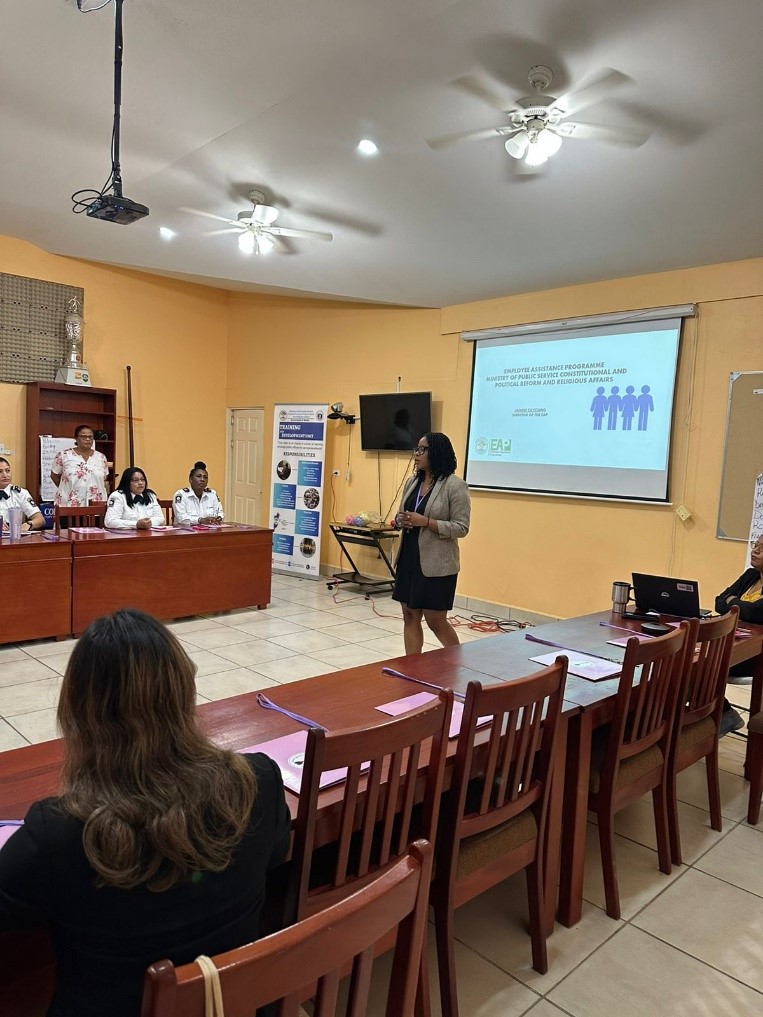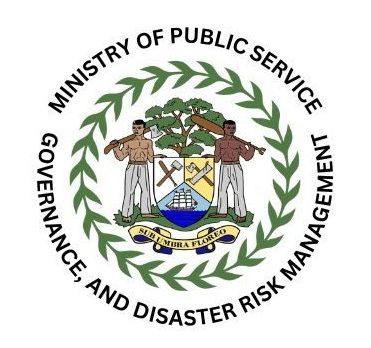Introduction
The Government of Belize encourages a Public Sector that is no longer straddled by outmoded mechanisms of long ago, but one that is a modern, vibrant and a proactive force that promotes and enables the sustainable socio-economic development of Belize. Based on this precept, Government of the day embarked on a Modernization Programme for the Belize Public Service in 2012. This programme focuses on people (human resources), organizational processes and structures as they relate to the realization of the modernization goals. Thus, the programme highlights a number of strategies for transforming and changing, in fundamental ways, the policies, systems, structures, attitudes and habits that pervade the public service. One of its main goal is to provide the support necessary to deliver quality service to all our customers.
In March of 2015 the then Ministry of the Public Service and Elections of Boundaries launched the Employee Assistance Programme (EAP) for the Belize Public Service.
In the broadest sense, an EAP is a confidential and professional management support programme that recognizes that there can be extraneous factors that may detract employees from performing their best in the work place.

About Us
What is EAP?
In the broadest sense, an EAP is a management support programme that recognizes that there can be extraneous factors that may detract employees from performing their best in the workplace. Some of these factors/stresses – (e.g personal or job-related stress, family, or marital problems, legal or financial difficulties, alcohol/drug abuse, and other behavioural problems) – while not necessarily originating from the workplace, can grossly affect productivity. If the tenet that ‘our human resources are our most valued resource’ is accepted, then managers will not merely “write-off” an employee nor will managers ‘pamper’ employees. In the interest of obtaining optimum productivity from employees, managers will employ ways and means to assist employees to alleviate or manage the life-impacting factors at minimum cost and in minimum time.
At the workplace managers may coach or counsel employees. In simple terms, coaching is done to assist employees to learn and do a better job using knowledge and skills to enhance productivity. On the other hand, counselling comes into play when an employee’s productivity is not at optimum, and it is recognised that neither training nor coaching can address the issues. Counselling then, is a tool used to assist employees to improve their performance by addressing personal problems that affect their productivity.
The EAP looks at the wellness and well-being of the employee to ensure productivity. When productivity is not related to a training deficiency the system is employed to reach out to the employee. While the manager may offer basic counselling, employees are encouraged to avail themselves of the programme and to develop personal plans to address their problems.

Roles and Responsibilities:
The EAP provide Education Services.
EAP conducts training sessions for managers and supervisors cover the following:
- The scope and limits of EAP, the confidentiality aspects, the procedures for accessing the programme;
- The administrative role with respect to EAP and referrals;
- The concepts and methods that allow for early detection of problems that interfere with job performance;
- Constructive methods to deal with employees experiencing performance problems due to personal or behavioral problems; and
- Support approaches to assist the employee.
The EAP also provide Counselling Services.
The EAP provides short term counselling, in a broad range of personal concerns, including, but not limited to:
- Marital, family and relationship problems
- Substance abuse (alcohol, drugs, prescription medication) and other addictive behavior such as gambling.
- Personal debt and financial management problems.
- Stress (family, social, job)
- Family violence
- Mental / Emotional problems
- Work related conflicts
Prevention Activities
Consistent with the programme design and the organizational mandate, preventive programmes should be held to educate employees about personal problems related to life style and work environment, and the possible responses. This may involve cooperation with other governmental and non-governmental agencies in the community.
EAP Policy:
The Team

Janine Cayetano

Tiffany Taylor

Lori Cunningham
Gallery






